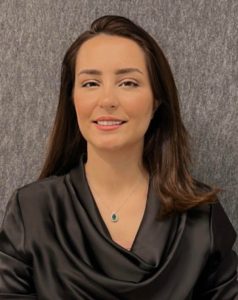By Mana Moassefi, MD
Does the saying “Put on your own oxygen mask first” stem from a selfish or non-moral origin? Or do we all easily grasp the vital truth that, to save another person, we must be saved first? When it comes to self-care, is it accurate to say that the well-being of a doctor can facilitate the well-being of their patients?

The answer to that question becomes evident when we consider the Revised Declaration of Geneva in 2017, which underscores this necessity: “I WILL ATTEND TO my own health, well-being, and abilities in order to provide care of the highest standard.”[1] This modern iteration of the Hippocratic Oath highlights the importance of self-care for medical professionals, recognizing that attending to one’s health is foundational to providing excellent patient care.
In the pursuit of maintaining a healthy lifestyle, the role of the individual is undeniably crucial. Each person must take active steps to claim and retrieve their health, ensuring they engage in regular physical activity and carve out time for personal well-being. This personal responsibility is the most immediate and effective way to manage stress, enhance resilience, and maintain the capacity to care for others.
However, aware that stress negatively impacts your body, you can become stressed about being stressed. The relentless pursuit of a healthy lifestyle can inadvertently become a source of stress and an unhealthy situation, particularly when work environments significantly contribute to our inability to make healthy daily choices. For example, your schedule may not leave time to work out three times a week and you may feel powerless to change it. This brings us to a critical question: How do we balance our personal responsibility for our health with the necessity for supportive work environments that do not cause burnout?
It wasn’t until 2012 that a sharp focus on physician well-being emerged in the medical literature. Shanafelt and colleagues published the first large-scale study of burnout among U.S. physicians, revealing that nearly half were at “high risk for burnout.”[2] The study caught public attention, leading to increased scrutiny and concern about the fitness of the physician workforce. Unfortunately, the initial response was to blame physicians, focusing solely on individual interventions such as meditation, mindfulness, nutrition, sleep, and physical fitness[3].
Further studies and initiatives, such as the 2019 report by the National Academy of Medicine (NAM) titled “Taking Action Against Clinician Burnout: A Systems Approach to Professional Well-Being,” have shifted the focus toward a more systemic approach to addressing burnout[4]. The burden of well-being should not rest solely on individuals. Work environments play a significant role in either mitigating or exacerbating stress and burnout. When workplaces fail to provide the necessary support and resources, it becomes imperative not to place all the responsibility on individuals.
The professional culture must shift to acknowledge and address these systemic issues. We need to normalize the expression of needs related to mental and physical health, as well as the needs of loved ones. By creating a supportive environment that prioritizes physician well-being, we can foster a culture that enables healthcare providers to thrive. “Checking the well-being box” without changing the system is as useful as rearranging deck chairs on the Titanic. Real change requires a shift in how we view and address the culture of medicine, ensuring that physicians have the support they need to thrive both professionally and personally.
Being healthy begins with us and our decisions, but it does not end with us and we are not the only factor! We must advocate for and work toward transforming workplace cultures to move closer to a healthier environment for everyone. Reflect on this: What would that one step toward a healthier community look like for you and your environment?
Dr. Moassefi is a postdoctoral research fellow at the Radiology Informatics Lab, Mayo Clinic. Her research focuses on advancements in neuroradiology and abdominal radiology. She is an alumnus of the Academy Council of Early Career Investigators in Imaging, Class of 2024, and received the Roger A. Bauman, MD, Award from the Society for Imaging Informatics in Medicine (SIIM). Additionally, she serves on SIIM’s education and machine-learning education subcommittees.
- Parsa-Parsi RW. The Revised Declaration of Geneva: A Modern-Day Physician’s Pledge. JAMA. 2017;318: 1971–1972.
- Shanafelt TD, Boone S, Tan L, Dyrbye LN, Sotile W, Satele D, et al. Burnout and satisfaction with work-life balance among US physicians relative to the general US population. Arch Intern Med. 2012;172: 1377–1385.
- Sinskey JL, Margolis RD, Vinson AE. The Wicked Problem of Physician Well-Being. Anesthesiol Clin. 2022;40: 213–223.
- National Academies of Sciences, Engineering, and Medicine, National Academy of Medicine, Committee on Systems Approaches to Improve Patient Care by Supporting Clinician Well-Being. Taking Action Against Clinician Burnout: A Systems Approach to Professional Well-Being. National Academies Press; 2020.


